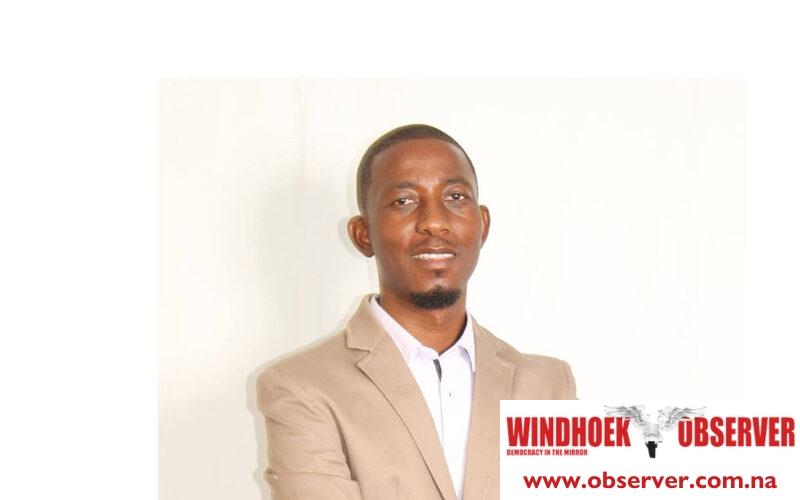Sem B.David Imbodi
In my recent studies, I thoroughly uncovered that the economy of Namibia is under threats of inflation and downfall due to a lot of public debt, inland revenue circulation, and our dependency on other states.
It is really disappointing that our headlines in newspapers and reports speak the opposite of the based reality. If you keep taping or fetching water from the neighbor’s house, you will always do that on good terms. The day good terms are withdrawn, thirst and hunger will strike your house. We are so dependent, even on little things, and have no means of production.
They say “who feeds you controls you” and I agree as it is easy for us to be manipulated and controlled. That could be the reason we have no powerful say when it comes to our business and state agreements with outsiders, nor do we so courageously stand in defending our resources. I wonder if we have plans of starting our own productions, even to start with small productions, year by year till we achieve and grow our own economy.
The Namibian Dollar is linked to the South African rand, making many economic trends (including inflation) closely follow those in South Africa. Namibia is also a member of the Common Monetary Area, SACU and SADC, the latter guaranteeing preferential commercial links with any of the remaining 13 countries which comprise this organization, representing a market of 190 million consumers.
Is this dependency going to boost our economy or will it only cause more issues and suffering in our marketplaces? What actions did South Africa do to be successful in the state of development? What is preventing the people of Namibia from doing the same?
What possessions do we have that others might rely on? What are we producing? Does it make a stronger statement about our economy’s growth? If not, what concrete plans do we have to inspire the world? Naturally, people who work in offices might not see it, yet it is alarming and urgent. For how long should this continue going on?
We commend other nations that have achieved economic stabilization through development states, such as Botswana, China, and several others. These nations are prospering and expanding so quickly that they are taking good risks when it comes to exporting to other nations. Namibia imports a lot of items, including those that we can create locally, rather than increasing exports and developing the local markets. Think about bringing in toothpaste, tomatoes, and pretty much everything else. Supermarkets, banks, and insurance providers are national enterprises that operate internationally.
When will we be able to produce things on our own and begin to grow industrialized?
When will we have state banks, supermarkets, and other businesses deserving of boosting the economy of our own? Should our resources still be used to benefit Westerners rather than citizens?
The truth is that we don’t realize how detrimental a mixed economy is, particularly for the underprivileged and unskilled. In a mixed economy, the rich will keep getting richer and the poor will keep getting poorer. The position of capitalism and socialism, which includes both state and private businesses, can be considered viable but will take a while to adopt in order to have a stabilized economy, particularly in Namibia. Due to the widening gap it causes between the rich and the poor, as well as between developed and underdeveloped communities, it has a side effect that is unique to the impoverished. Rich people will ultimately remain the main emphasis, leaving the poor behind.
A developmental state is crucial for developing countries like Namibia for several reasons:
- Economic Growth: Policies that promote industrialization, infrastructure development, and technical innovation can propel economic growth in a developmental state.
- Institution Building: It contributes to the establishment of robust institutions, which are necessary for stability, governance, and the efficient application of laws.
- Strategic Planning: Long-term planning and strategic development are the main priorities of developmental governments. This is because these issues are critical to solve the particular problems that developing nations face.
- Public Investment: It has the ability to organize and oversee public spending in important areas like infrastructure, health, and education, all of which are vital to overall progress.
- Reducing Inequality: A developmental state can aid in the reduction of income inequality and poverty, which are pervasive in many emerging nations, by emphasizing equitable growth and social welfare.
- Capacity Building: It can improve the state’s ability to efficiently manage resources, carry out programs, and respond to new issues.
A developmental state could assist Namibia in making the most of its resources and potential in order to promote sustainable development and raise the standard of living for its people. I instill this mindset in all Namibians to reflect and think about what basically needs to be done to bring about the change we claim to have. It is now crucial for all of us to make deep reviews as we have elections and analyze all that is needed to evaluate plans stipulated in election manifestos. So far, not any political party that released or launched their manifestos have ever mentioned anything about a developmental state.
We look forward to those that are still launching or about to release their manifestos.
Namibian, it is later than we think!
Sem David Imbodi, A Youth Leader: Community Development and Social Justice Advocacy. Email: semmydmd@gmail.com




